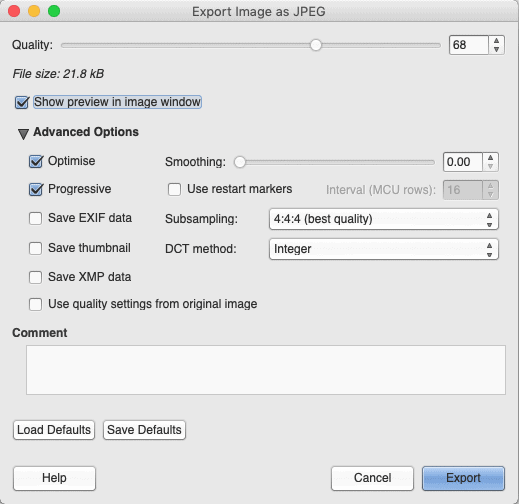When setting up a website, you hardly think about the space it will take up on the server hosting your site.
However, you should consider it a significant aspect because it impacts both the value you get for your money and your site visitors’ experience.
Installing WordPress using your hosting provider’s app installer is around 130 MB for the files and 2.5MB for the database. A manual install of WordPress is 56MB for the files and 4Kb for the database. Take into account log files and other hidden files. The minimum is 1GB. I recommend 5GB of disk space.
Using the app installer provided by your hosting company for installing WordPress will include additional templates and themes. Although the app installer is the easiest way for installing WordPress, you can delete the unwanted plugins and themes.

There are two important considerations you need to make, and that is disk space and bandwidth.
Difference between Hard Disk Space and Bandwidth
Disk space refers to the storage of your website files located on the servers.
These files include items like
- HTML files
- Databases
- Images
- Log files
- Hidden files
On the other hand, bandwidth refers to the amount of data transferred to and from your website and users. It includes all downloads and uploads.
While the disk space is affected by the website you have, it stays unchanged regardless of the number of visitors. Bandwidth, on the other hand, is significantly influenced by the number of visitors to your website. Therefore, the amount you are using keeps fluctuating, and the more visitors you get, the more you are using.
Web hosting companies usually reset the bandwidth usage every month, so it is calculated monthly. However, no reset is done on the disk space, and it only changes with the addition or deletion of files.
Why should you be concerned about website space?
As the introduction mentions, disk space and bandwidth affect two critical areas; your budget and the website’s functionality. The amount of disk space often factors into your budget unless you get unlimited plans.
If you have bigger files and a multimedia site, you will need to invest in more disk space and bandwidth. That’s because these larger files will quickly use up your disk space.
In the case of bandwidth, should you exceed your limits, then you are likely to have your website suspended for a while in case of a spike in traffic. If it is a frequent occurrence, some companies may bump you to the next package, and you will pay more for it.
What elements take up disk space
The first thing most people focus on when considering disk space is the HTML files. It is the most apparent storage content but hardly the only one, and you could be surprised that the other files could eat up more space. Some of the main items taking up disk space include;
- Emails, logs, and databases: your application configuration files, emails, and logs all add up to the space your website takes. You can find these under your home directory. You also have the databases your site stores which also contribute a significant portion of your storage space.
- Audio and video content: if you are serving audio and video content directly from your site, it will impact your disk space. Such content will also affect your bandwidth, especially if your website visitors download the content directly from the site.
- CMS Core Files: You also should consider WordPress or other CMS core files, including the themes and plugins you add.
- Graphics: photos, animations, banners, and other media formats take much more space than HTML files. Compressing them will help you minimize the amount of space each page takes. Ideally, it should be below 1MB for each page. I use ShortPixel on all my sites. I purchased 10,000 credits for $9.99.
Resize your images before uploading tour your website
Resizing your images before uploading them to your website will save disk space and bandwidth. When you take a picture with your camera or phone, the image file size can be over 5MB.
To help you resize your images, you can use;
- Canva will allow you to resize the image, and you can adjust the quality of the image before downloading the file. I use Canva a lot
- GIMP is an application you can install on Windows or Apple Mac. you to resize the image, and you can adjust the quality of the image before saving the file
- Resize image is another online tool allowing you to resize the image and you can adjust the quality of the image before downloading the file
The image below taken with my phone was 5.9 MB and had a dimension of 5984 x 3376. I used GIMP to resize the image to 1200 x 628, and this is the size I use for my post feature image. And then compressed using ShortPixel.

Here is the original image.
Image resized using GIMP 21.8 kB using the below settings
Quality = 68
Optimized = Ticked
Progressive = Ticked

Image compressed with ShortPixel resulted in a file size of 18.6 kB. As you can see, I’ve taken the image that was 5.9MB and reduced the size to 18.6 kB.
How much space does a website need?
The best answer here is – it depends, first on the size of your website and secondly on the kind of content present on the site. For example, small websites with mostly text content can be hosted well on 1 GB storage space. Such sites will also work well with the most basic of bandwidth packages.
99 % of websites online use less than 5GB of bandwidth per month. Thus, you can say a small to medium business, even one with rich website content, can use 5GB to 10GB of disk space and 5GB – 20 GB of bandwidth.
Unlimited bandwidth and unlimited disk space
Unlimited bandwidth or disk space is a myth because the web hosting providers pay for their bandwidth, and they also have limits to the space packages they offer. The reason they advertise such packages is that the average user will never reach the limits and is therefore unlimited.
What these companies then offer is unmetered packages. These packages mean you will not be billed for storage space your site is taking up nor the amount of site data transfer (for unmetered bandwidth).
As such, you can take up as much space and bandwidth as your needs dictate as long as you do not affect server usage. This is an excellent arrangement, especially if you receive periodical spikes or want to increase the content of your website to have items like banner ads, graphics, and galleries.
Website hosting companies offering unmetered website space
Working with web hosting companies that provide unlimited options for disk space and bandwidth is best. It ensures your spikes and growing content does not leave your site suspended or come at an extra cost. Some excellent webs hosting companies include;
NameCheap
NameCheap is one of the biggest domain selling companies founded in 2000. It also provides hosting services, and for websites seeking to expand, the Steller Plus Plan is the best package as it offers
- Unlimited websites
- Unmetered bandwidth and disk storage
- Unlimited email accounts
- Automatic backing
- 30-day moneyback guarantee
InMotion Hosting
InMotion Hosting comes with different hosting packages. The shared Business Pro package is the one that provides unlimited hosting making it the right one for growing websites. The plan offers the following among other benefits;
- Unmetered disk space and bandwidth
- Automatic backups
- Free SSL certificates
- Unlimited websites and domains
- DDoS protection
- Pro-level support
- Free website hosting transfer with no downtime
Fees for the whole term are paid in total upfront
Bluehost
Founded in 2003, Bluehost is one of the biggest website hosting companies hosting over two million websites worldwide. Its Plus plan is great for small websites and blogs and comes with the following features;
- 30-day moneyback guarantee
- Unmetered bandwidth and disk space storage
- You have unlimited websites and domains
- You get a free domain name for the first year
- Free SSL certificates
- Unlimited parked domains and subdomains
- 24/7 support
Bluehost plans do not come with initial monthly contracts, and as such, you have to pay for the whole term in full upfront.
Knowing your bandwidth and storage space needs will help you plan for your website’s growth as well as its content and format. You will also budget for your expenses and choose better hosting deals. Further, it will help you avoid cases of your website having slow loading times or being suspended due to exceeding bandwidth limits during peaks.
Conclusion
Unlike bandwidth usage, which is reset monthly, disk space is not; you will want to make sure you keep on top of your storage.
- Resize your images; when you take a picture with your camera or phone, the image file size can be around 5MB
- Compress images before uploading or use the ShortPixel Image Optimizer WordPress plugin, and this plugin will compress the image after you upload it to WordPress
- Keep an eye on your logs files, and these will accumulate over time
- Try to avoid installing unnecessary WordPress plugins, as this will bloat the database. Even after the plugin is removed, the entries may remain in the WordPress database.
If you’re looking at a web hosting provider that limits the storage, I recommend you go for at least 5GB.

Leave a Reply